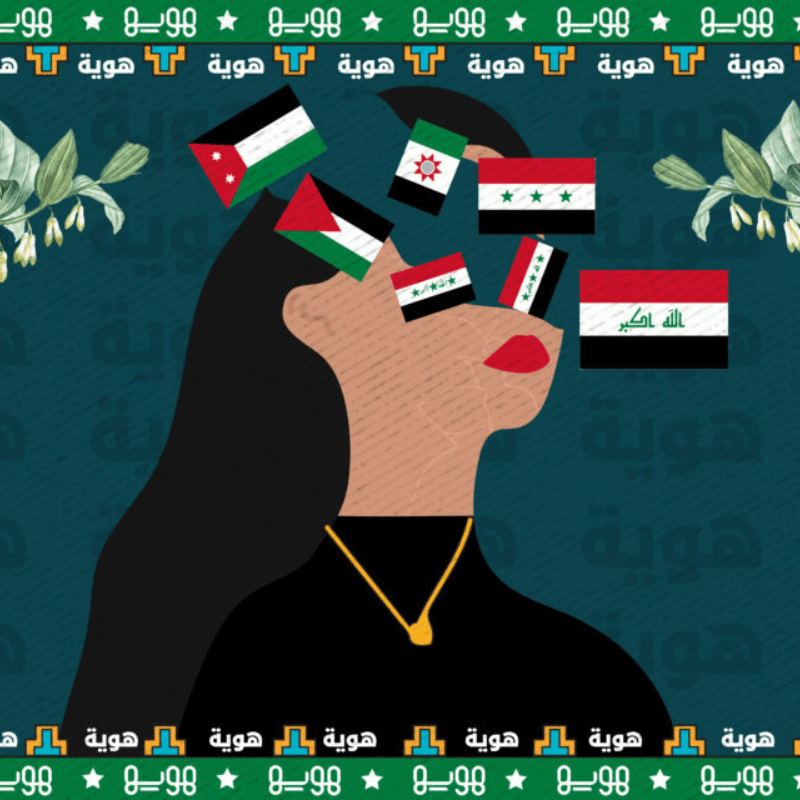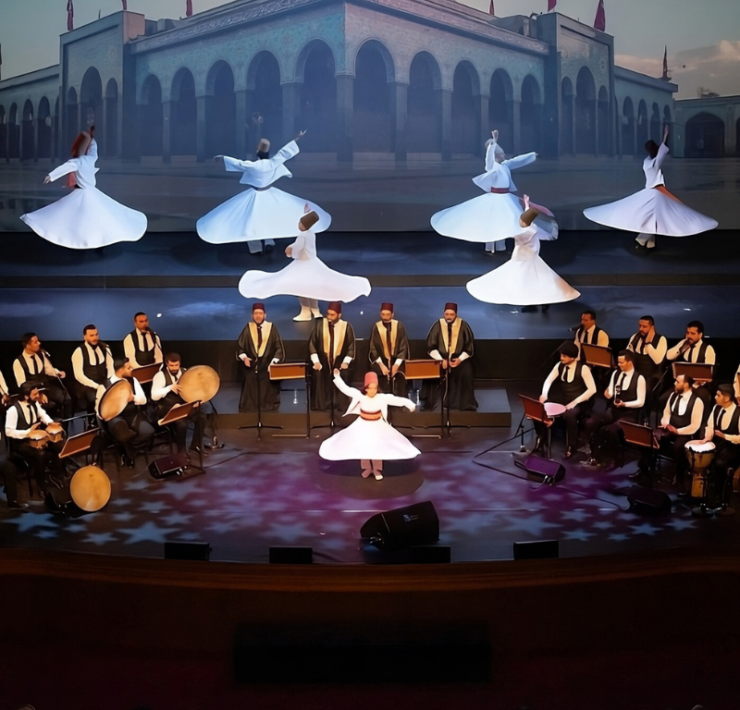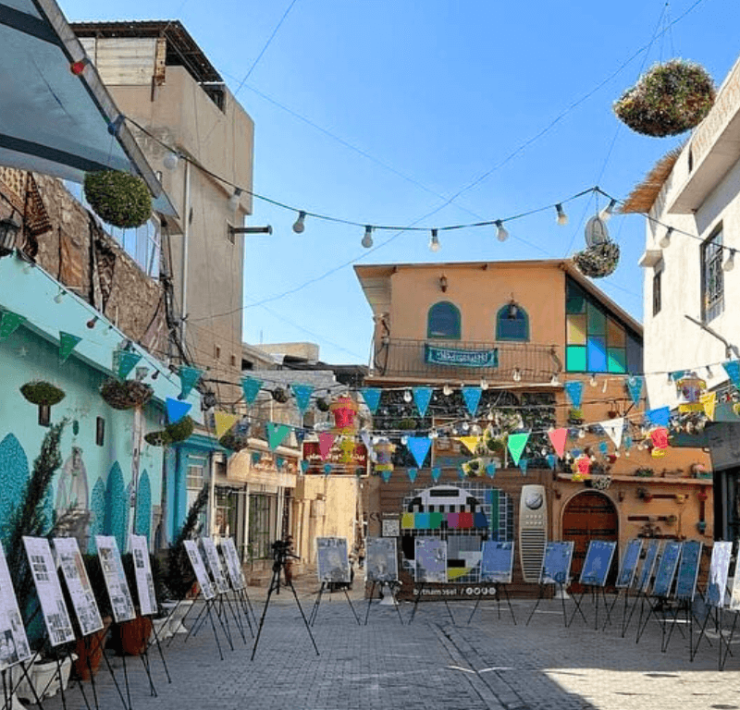By Reaam Mahbuba
This essay was originally published at 1001 Iraqi Thoughts and is part of a special series – Iraq after 2003: The Voices of Iraqi Women.
As a daughter of the diaspora, my feet have touched the soil of many lands and crossed their boundaries; forming temporary homes wherever I settle. Aside from the quiet nests I have created throughout my life, I have also gained something else; an inner grasp of geographical narratives on global issues. More particularly, the case of the U.S invasion of Iraq: through the lens of the East and the West. At 8 years old, I didn’t have a strong grasp of what it meant to be “Iraqi”. I gained my earliest understanding of the U.S invasion through the lens of the West, particularly through American culture and politics. The story was interwoven in the political speeches of officials and Hollywood films wherein the Americans, the “heroes”, had come to rescue the fragile Iraqis from their ill fate under the villainous Saddam Hussein. The presumed heroes would then alleviate the helpless Iraqis from their suffering at the hands of their malicious dictator. At that tender age, this was the Iraqi story I understood.
A few years later, I moved across seas into a new home, one that I hoped would bring me closer to my Arab roots. I found myself in a country which shared borders with my home country, but little else. There I assimilated into the culture, settling into a new home that I again had imagined to be a temporary refuge. Still in my pre-teens, and yet to become aware and alive to my own politics upon introducing myself and declaring proudly my Iraqi nationality, the first question I was met with was always the same: “Are you pro or against Saddam?” A question that left me feeling uneasy. The next line of questioning frequently went something like this: “Saddam was a great hero! The Americans, they ruined Iraq.” In this new scenario, the heroes and the villains had switched places; Saddam was the hero and the Americans were the villains, but, unaltered, I, as an Iraqi, was still the helpless victim, lacking agency.
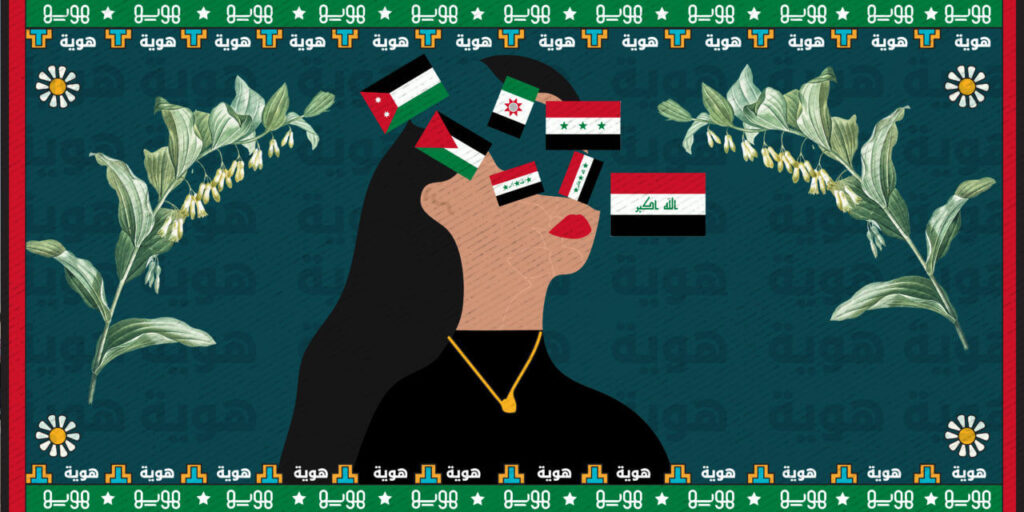
I graduated high school and moved to Lebanon to begin my college studies in Political Science (a subject I had taken an interest in for obvious reasons). Upon my insistent introduction as a proud Iraqi, I was met with various reactions and views. At this stage, it dawned on me that the Iraqi voice was unheard. The Iraqi story continuously see-sawed between East and West, toggling between dichotomized narratives devoid of nuance and a complete removal of the complexity of the Iraqi experience. The narrative of generational victimhood only deepened and was clouded by a grave sense of nonexistent autonomy.
The Iraqi story continuously see-sawed between East and West, toggling between dichotomized narratives devoid of nuance and a complete removal of the complexity of the Iraqi experience.
As an immigrant traveling and meeting other Iraqis, I started to grasp the intricacy of the Iraqi experience. No two stories were alike, yet all valid and true in their own right. Despite the fact that none of the 10 million Iraqis living abroad, including myself, have had the same experience, we do share one thing in common: a story of extreme victimization, a national character without agency, and an identity that clings to our sorrow. It is a story that we do not even feel that we have the right to claim, as it is constantly being challenged by Eastern and Western perspectives. A victimhood narrative even in their nuances, a discourse that toggled between the Iraq war being a crime or an exercise in liberation left little room for the rich experiences and desires of Iraqis.
These narratives had bred a hopeless identity crisis, one which dictated that my fate as an Iraqi was one of two-fold victimhood: either remain a victim under the Saddam regime, or reassess yourself as victim to be liberated at the hands of war. Even though this story was unduly simplistic, academics, politicians, and the media all adopted it. I did not exist beyond these limited boundaries. As the perspectives of the West grated against those of the East; I was inclined to uncover the emergence of an untainted one; an Iraqi story and identity that existed beyond victimhood. Because, I pondered, what happens when an entire nation holds on to the belief that it is inherently powerless and holds no agency for self-liberation? It becomes an intrinsic part of their identity. A term I often heard was “Al Iraqi Khatiya”, an Iraqi expression loosely translating to “the Iraqi is to be pitied” or “the poor Iraqi”. A telling term that captures the underlying melancholy that has seeped into the fabric of Iraqi identity.
These narratives had bred a hopeless identity crisis, one which dictated that my fate as an Iraqi was one of two-fold victimhood: either remain a victim under the Saddam regime, or reassess yourself as victim to be liberated at the hands of war.
Post-2003, a time expected to be one of “liberation” for Iraqis, instead cemented the path towards a new, self-inflicted, state of victimhood. As exiled Iraqi politicians returned to their homes, they went from being oppressed to finding themselves in positions of leadership overnight. What happens when you suddenly catapult a victim who has only experienced persecution to the position of ruler? To think that they will come to rule with dignity is naïve. With a vengeance, they seized their positions of authority. They understood the victimhood narrative Iraqis of many backgrounds carried deep inside our beings and took advantage of it in the most nefarious manner possible. It could be said that, in their eyes, their own corruption had come to be seen as a justifiable kind of retribution for their suffering under the Saddam dictatorship. This reinforced the collapse of national identity that had already been occurring due to the breakdown of social cohesion and state apparatuses.
Here a violent expression of identity politics developed. During this time, Sunni-Shia tensions intensified as sectarian identities felt threatened, and as a result, became the core of identity. What was once one of many symbiotic identities morphed into an aggressive defensive mechanism that inspired death and great sacrifice. Similar to the pre-2003 era, post-2003 sectarian and ethnic differences were a function of social and political realities. They acted as a survival instinct and as a matter of national ownership and rightful belonging. The country fractured: the Sunnis felt undermined and unmoored, the Kurds wanted their own autonomy, and the Shia wanted political representation. The many other ethno-religious groups were left with little representation, which is what caused their migration up to the present day.
Identity politics will persist in Iraqi society due to the country’s diverse ethnic and religious backgrounds and conflict-ridden history unless the social, political conditions are created for its eradication. But all is not lost for Iraq. It can be said that a national identity has begun to incrementally take shape of one where sects revert to a banal allegiance and a national belonging takes precedent. Through events such as the 2019 Tishreen protests, there was a reawakening which ignited a type of generational healing and identity that wants a “nationhood” (to borrow the protest’s slogan). As I sit here in Baghdad, and write these words from a home that I had yearned for over the last 20 years, I can affirm that a new consciousness has awakened amongst the new generation. In a nation that has had nine different flags in less than a century, the emergence of a desire for a national identity—a unified identity, is all the more important.
As I sit here in Baghdad, and write these words from a home that I had yearned for over the last 20 years, I can affirm that a new consciousness has awakened amongst the new generation.
After spending so many years in the diaspora, inheriting family stories of pain and war, and having an unquenchable longing for my motherland, I have discovered that identity is complicated and that it can take on different forms across historical eras, social groups, and geographic boundaries. Despite this, it is crucial to share these varied stories and free them from the victimization narrative that Eastern and Western perspectives impose. To broaden the consciousness of the Iraqi identity away from the narrative of victimhood and toward one that, however far-off it may seem, invites a fresh viewpoint that reclaims agency, and centers Iraqi experiences. Our stories are important, and language is crucial because the words we choose to represent ourselves shape our consciousness. In this instance, phrases like suffering, division, loss of autonomy, victimhood, and hopelessness have been woven into the fabric of the nation’s consciousness.
It is crucial to share these varied stories and free them from the victimization narrative that Eastern and Western perspectives impose.
The stories that we tell ourselves, the stories written by the generations before us, and carried within our history books, are crucial. For every national story is a compendium for the next generation. A national identity tells us who we are, who we are requires the answer of who we’ve been and where we seek to go. As for where we have been; the victimhood narrative has hung ominously over the Iraqi people for the past 50 years and it is not the only one we must honor. We must invite stories of the latter; those of where we are headed and seek to go. This is not a plea for naive optimism, but rather a declaration that we may be honest in our trials, and true to our suffering, without erasing our agency in altering and expanding these narratives.

Reaam Mahbuba
Reaam Mahbuba is a political consultant, policy researcher and non-profit founder of Iqraa Youth Organization. Her research focuses on Iraq policy, identity and culture.
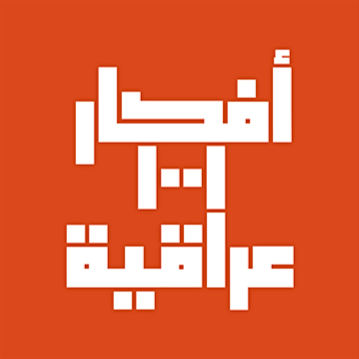
1001 Iraqi Thoughts
1001 Iraqi Thoughts is a platform dedicated to reasserting the central role of Iraqis in the future of their country by empowering Iraqi voices that can offer authentic perspectives and insights to help make sense of developments on the ground.
Their recent series Iraq after 2003: The Voices of Iraqi Women focuses on creating a space for Iraqi women (in Iraq and in the diaspora) specifically to share their reflections and their work on all things Iraqi life, society, politics, development, history and culture, focusing on the changes since 2003 and on their outlooks and ideas for what the next 20 years may bring.
If you enjoyed this article, you may also like:
READING LIST | 19 Books To Help You Understand Iraq
The Best Middle East and North Africa Podcasts in 2022 – Politics & History
Women’s History Month: 6 Awe-Inspiring Women From The Middle East And North Africa

